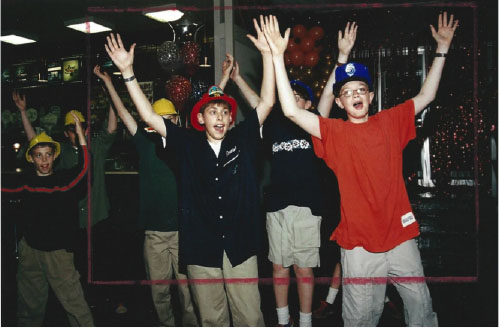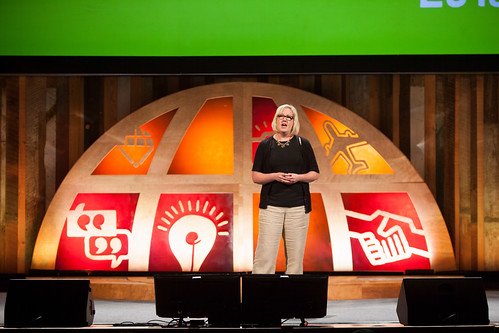That’s a photo of me in 7th grade. I’m in the center, wearing the fireman’s hat. I was shorter then. When I went for a checkup in 8th grade, the doctor said I’d probably top out at 6′.
Then I grew 6 inches in a year. And kept growing.
But a funny thing about that: No one really noticed. Not my family. Or my friends.
Growing 6 inches in a year is a lot, but it happens incrementally. A quarter of an inch here, a half an inch there. The change happens so gradually that you don’t notice what it’s all adding up to.
So we didn’t notice anything — until some cousins from out of town visited, and noticed that I had obviously grown a lot. The news came as a shock to everyone I knew. (Even me, kind of — I had spent the winter complaining about how my entire body hurt all the time, but I wasn’t quite sure why.)
We go through these changes all the time. Little things and alterations that add up, tiny changes in the way we work and the types of work we do. Eventually, they add up to something big.
But when we wake up in the morning, we don’t feel like we’re making big changes. We don’t notice what’s happening all around us. We look at the little picture, and never the big.
Often, it takes an outside force for us to take stock of what’s been going on.
But if you’ve been doing great work, and you’ve been putting in a lot of work, you start to notice what you’ve been building all along. It could be something really great.






